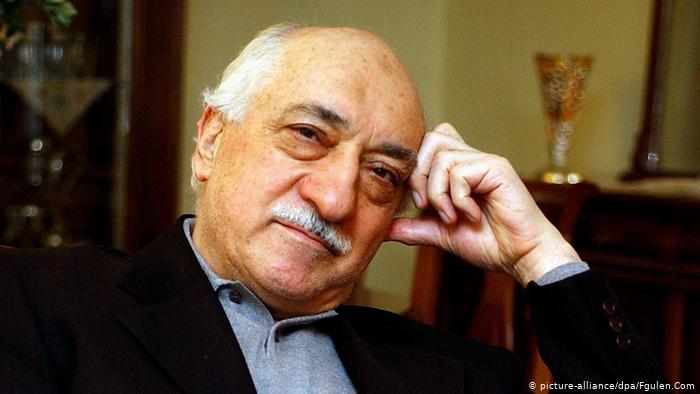“Several years ago I became acquainted with a Turkish-originated movement that sponsored interfaith dialogue. The members of the group, most of whom are Turkish, are also Muslims. I later discovered that this group was part of a movement known as Hizmet, which is Turkish for service. I’ve come to know and respect the members of this movement, at least those whom I’ve encountered. They are faithful Muslims who embrace service to others and interfaith dialogue and partnerships. Since these are core values for me as a person, it seemed appropriate to build on the relationships that were developing.”
The above quote was gleaned from a book titled FETHULLAH GÜLEN: A LIFE OF HIZMET written by Jon Pahl, a Professor of the History of Christianity. Jon Pahl indeed captured the life of Fethullah Gulen, the man whose ideology inspired millions across the world in what is known as the Hizmet Movement. Hizmet Movement is an international social movement of moderate Muslims committed to fostering peaceful interactions, humanitarian social responsibility and human development through educational, media, dialogue and service initiatives.
Fethullah Gülen was a Muslim intellectual, thinker and religious scholar. He was born in Turkey in 1941. He grew up in a very religious environment. His first teachers were his parents. He was loved by many for his understanding of Islam. He believed that “love is the strongest and most powerful weapon in the universe and that training the body of children is easy. However, very few train the minds and hearts of the pupils at the same time.” In his teachings, he posited that the distinction made between the mind and heart of students in the modern school system is a calamity for all. He also preached tolerance, dialogue and intercultural and interfaith relations. These formed the cardinal objective of the Hizmet movement and explain why it can inspire a generation of moderate Muslims to impact the world through service to humanity.
For Fethullah Gulen, “A person is truly a human if he or she learns, teaches, and inspires others. It is difficult to regard as truly human, someone who is ignorant and has no desire to learn.” I found his position very instructive. His point was simple. Ignorance is the bane of inhumanity as experienced around the globe. He encouraged his followers to build schools if they had the means. It signified the beginning of the Gulen schools’ concept, a nomenclature by which schools were christened around the globe, and whose founders were inspired by the teachings of Fethullah Gulen. To date, these schools run independently. The fact that Hizmet Movement is not a registered organisation, accords informality to his ideology, rather than emplace a hierarchical organisation.
Advertisement
In the twilight of the life of Fethullah Gulen, the unexpected happened. In 2016, the Turkish Government announced the countering of a coup and the brains behind the attempted coup were Fethullah Gulen and the Hizmet Movement. This indeed jolted the world. The world was in the dilemma of accepting that a well-respected Islamic scholar who had inspired a generation of moderate Muslims, preaching love, tolerance and interfaith dialogue was involved in a coup against the government of Recep Erdogan, the president of Turkey. Unfortunately, he died with the allegations hanging around his neck. The he vicious campaign launched by the Turkish government against Fethullah Gulen and the millions he had inspired, also smeared the reputation of his followers. Millions were persecuted by the Turkish government and languished in jail for an offence such as possessing a book written by Fethullah Gulen.
The onslaught against the Hizmet Movement was massive. In some instances, Hizmet movement volunteers outside the shores of Turkey were kidnapped and extradited to Turkey on the orders of the Turkish government. Recently in Kenya, four Turkish citizens were kidnapped and extradited to Turkey to face persecution. In Nigeria, the Turkish government made several requests, which were rebuffed by the authorities for lacking in merit. The stance of the Nigerian government was simple. Provide evidence or bury the thoughts. To date, the Turkish government has yet to provide evidence that Hizmet Movement participants in Nigeria are terrorists.
Fethullah Gulen was labelled a terrorist by the Turkish government. But he was called Hocaefendi (revered master) by millions around the globe in service to humanity. He died at the age of 83 due to age-related illnesses. He passed a fulfilled patriarch and left a legacy of love, tolerance and peaceful coexistence. Fethullah Gulen authored many books that touched on the understanding of Islam. One of them is Toward a Global Civilisation of Love and Tolerance translated in 30 major languages in the world. In the book, Fethullah Gulen advocated for “greater awareness to Muslims that Islam teaches the need for dialogue and that Muslims are called to be agents and witnesses to God’s universal mercy. He also highlighted the need for non-Muslims to move beyond prejudice, suspicion, and half-truths to arrive at an understanding of what Islam is really about.”
Advertisement
Fethullah Gulen was not a terrorist until he breathed his last on 20 October 2024. The Turkish government could not prove it. And the world didn’t believe it. In 2008, he topped the “2008 Top 100 Public Intellectuals Poll” and came out as the most influential thinker. In an essay by EHSAN MASOOD thereafter, he argued “Is it possible to be a true religious believer and at the same time enjoy good relations with people of other faiths or none? Moreover, can you remain open to new ideas and new ways of thinking?” The author stated that “millions of people inside and outside Turkey have been inspired by Gülen’s more than 60 books and the tapes and videos of his talks. Why? A combination of charisma, good organisation and an attractive message. What Gülen says is that you can be at home in the modern world while also embracing traditional values like faith in God and community responsibility.” Gülen’s discourse was distinguished by his depth of knowledge, and eloquence. His sermons were well structured. He also expanded the function of the mosque by launching a Q & A series in which he responded to people’s concerns and curiosities, including those regarding the challenges of modern times.
In 2013, Fethullah Gülen was named one of TIME Magazine’s 100 most influential people in the world. TIME recognized Gülen for “preaching a message of tolerance that won him, admirers, around the world.”
The death of Fethullah Gulen was aptly captured by Tushar Arun Gandhi, an Indian author and great-grandson of Mahatma Gandhi. “Rest in Peace Fethullah Gulen in exile from his beloved country. Another voice of peace muted, a great loss to humanity.” Indeed, the death of Fethullah Gulen is a great loss to humanity. I say this because I have researched extensively on the Hizmet Movement in the aftermath of the failed coup in Turkey in 2016. My research findings were in tandem with the tributes that have poured in torrents after his death.
Some have asked questions about the survival of the Hizmet Movement after the death of Fethullah Gulen. Can his legacies be sustained? My research findings indicate that the Hizmet Movement outlived Fethullah Gulen many years ago. The movement was not about him. It was about service to humanity. And his life was for the benefit of humanity. Adieu Hocaefendi, yours was a life of service and posterity would be kind to you.
Advertisement
Ocheja, a military historian and doctoral researcher, is an alumnus of the Nigerian Defence Academy
Views expressed by contributors are strictly personal and not of TheCable.
Add a comment











